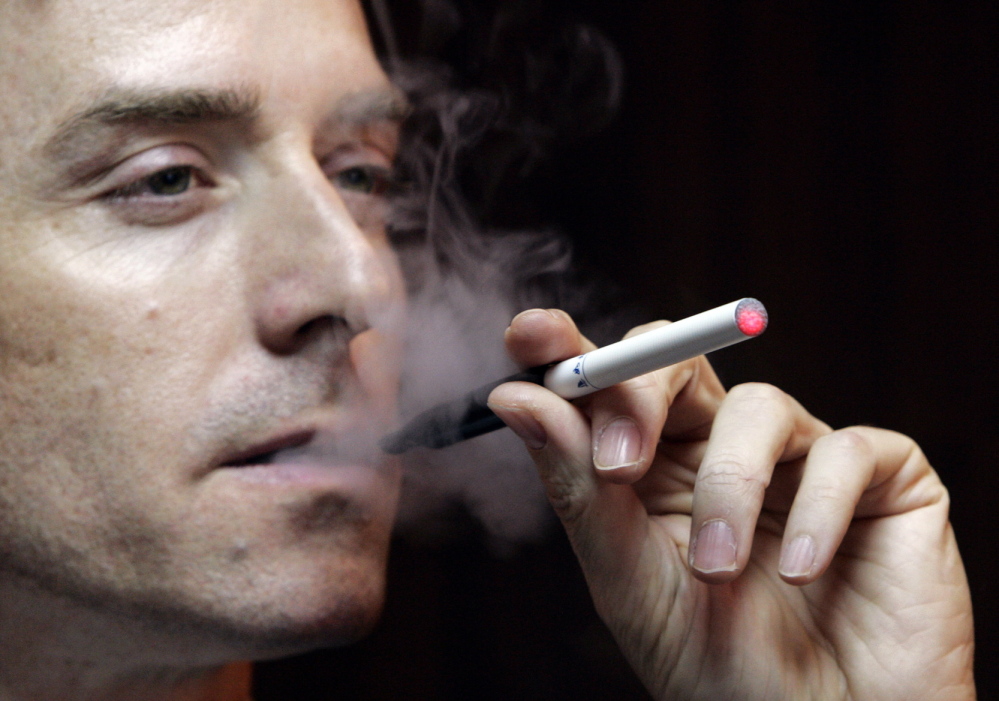BERLIN — Smokers who reached for e-cigarettes to try to quit were more likely to succeed than those who used patches or gum in the biggest study of people who chose the devices to kick the habit.
People who used an e-cigarette were about 60 percent more likely to stop smoking than those who used other over-the-counter nicotine replacement therapies in an attempt to quit, British researchers said in a study published in the journal Addiction.
The 5,863-person survey questioned people who tried to quit between 2009 and 2014, as e-cigarettes gained popularity.
About a fifth of the people who said they’d tried to abstain from tobacco in the past year using e-cigarettes said they still weren’t smoking at the time they were surveyed.
The study comes as governments wrestle with how to regulate the $3 billion market for e-cigarettes. The results are part of an emerging body of evidence suggesting that e-cigarettes be considered for medical licensing, said lead author Jamie Brown, a researcher in the University College London Department of Clinical, Educational and Health Psychology.
“It’s certainly one piece of the jigsaw puzzle,” Brown said in a telephone interview.
In the United States, the Food and Drug Administration proposed last month to extend its oversight of the tobacco industry to include e-cigarettes. New York, Chicago and Los Angeles have banned their use in some public places.
One sticking point has been whether the battery-powered tubes with their clouds of nicotine vapor could serve as a gateway for teenagers to start smoking the real thing. A survey by the Centers for Disease Control and Prevention found that one in 10 American high school students reported using an e-cigarette in 2012, compared to 4.7 percent a year earlier.
Tobacco companies such as Altria Group Inc., the maker of Marlboro cigarettes, and British American Tobacco, Europe’s largest cigarette maker, also produce e-cigarettes.
In England, smoking rates are declining and regular e-cigarette use among people who haven’t smoked the real thing is “negligible,” according to the researchers for the study. Funded by Cancer Research U.K., the report used data from the Smoking Toolkit Study, a national surveillance program begun in 2009.
Send questions/comments to the editors.



Success. Please wait for the page to reload. If the page does not reload within 5 seconds, please refresh the page.
Enter your email and password to access comments.
Hi, to comment on stories you must . This profile is in addition to your subscription and website login.
Already have a commenting profile? .
Invalid username/password.
Please check your email to confirm and complete your registration.
Only subscribers are eligible to post comments. Please subscribe or login first for digital access. Here’s why.
Use the form below to reset your password. When you've submitted your account email, we will send an email with a reset code.